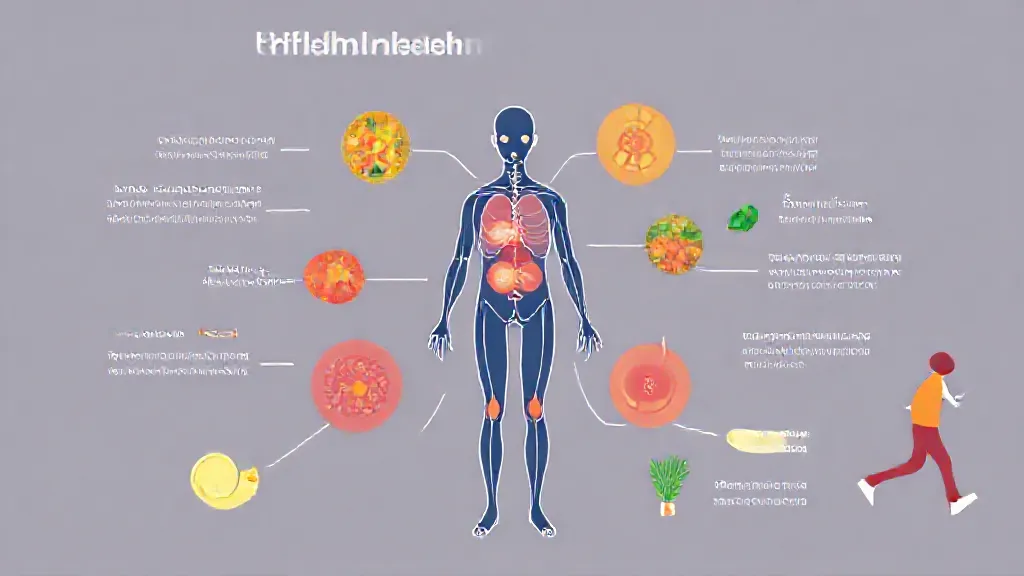Chronic inflammation is a prolonged inflammatory response that can last for months or even years. Unlike acute inflammation, which is a short-term process that helps the body heal from injury or infection, chronic inflammation can lead to a range of serious health issues. This article delves into what makes chronic inflammation dangerous, examining its causes, effects, and potential solutions.
The Mechanism of Chronic Inflammation
Chronic inflammation occurs when the body's immune system remains activated for an extended period. This can happen due to various factors, including persistent infections, autoimmune disorders, and exposure to irritants. The immune system releases cytokines and other inflammatory mediators, which, while intended to protect the body, can cause tissue damage when present in excess.
Over time, this damage accumulates, leading to changes in tissue structure and function.
Health Conditions Linked to Chronic Inflammation
Numerous studies have established a connection between chronic inflammation and several serious health conditions. These include cardiovascular diseases, diabetes, cancer, and neurodegenerative disorders like Alzheimer's disease.
For instance, chronic inflammation can lead to the development of atherosclerosis, where inflamed arteries become narrowed, increasing the risk of heart attacks and strokes. The link between inflammation and cancer is particularly concerning, as inflammatory processes can promote cancer cell proliferation and survival.
The Role of Lifestyle Factors
Lifestyle choices play a significant role in the development and persistence of chronic inflammation.
Poor diet, lack of exercise, smoking, and excessive alcohol consumption can all contribute to inflammatory responses in the body. For example, diets high in processed foods and sugars can lead to obesity, which is a known risk factor for chronic inflammation. Conversely, adopting an anti-inflammatory diet rich in fruits, vegetables, whole grains, and healthy fats can help mitigate these risks.
The Impact on Mental Health
Recent research has also highlighted the connection between chronic inflammation and mental health disorders. Inflammatory markers have been found to be elevated in individuals with depression and anxiety, suggesting that inflammation may play a role in the pathophysiology of these conditions. This bidirectional relationship complicates treatment, as addressing inflammation may improve mental health, while mental health interventions may help reduce inflammatory markers.
The Importance of Early Detection
Recognizing the signs of chronic inflammation is crucial for early intervention. Symptoms may include fatigue, joint pain, and digestive issues, but many individuals may not associate these symptoms with inflammation. Healthcare professionals can utilize various biomarkers to assess inflammation levels in the body, including C-reactive protein (CRP) and erythrocyte sedimentation rate (ESR).
Early detection can lead to lifestyle modifications and medical interventions that may prevent the progression of inflammation-related diseases.
Treatment Options and Strategies
Managing chronic inflammation often requires a multifaceted approach. Anti-inflammatory medications, such as nonsteroidal anti-inflammatory drugs (NSAIDs), can help alleviate symptoms.
However, lifestyle changes are equally important. Regular physical activity, stress management techniques, and a balanced diet can significantly reduce inflammation levels. Additionally, some supplements, like omega-3 fatty acids and curcumin, have shown promise in reducing inflammation.
Future Research Directions
Ongoing research continues to explore the complexities of chronic inflammation and its wide-ranging effects on health. Scientists are investigating the role of the microbiome in inflammation, as gut health has been linked to systemic inflammation. Understanding these relationships may lead to novel therapeutic approaches that target inflammation at its source, offering hope for individuals suffering from chronic inflammatory conditions.
Conclusion: A Call to Action
Chronic inflammation poses a significant threat to overall health, contributing to a variety of serious diseases. By understanding the mechanisms behind chronic inflammation and recognizing its risk factors, individuals can take proactive steps to reduce their risk. Emphasizing a healthy lifestyle, early detection, and appropriate medical interventions can pave the way for better health outcomes in the face of chronic inflammation.
Awareness and education are key to combating this silent epidemic that affects millions worldwide.
